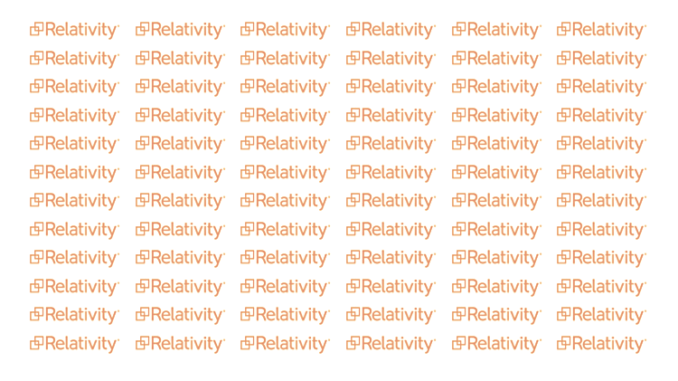
Artificial Lawyer recently caught up with Shawn Gaines, the Director of Product and Community Marketing, at ediscovery platform Relativity and asked him if he could tell us some more about the company’s ambitious growth strategy to create a ‘legal tech app store’.
Gaines starts with stressing that Relativity has focused on the basics of building what will help clients with ediscovery. Getting this foundation right was the number one objective, after that – as in now – a much broader goal could be focused upon.

‘The first thing was to make a good review tool and to then provide end to end discovery in one platform,’ he notes.
They have certainly done that. Relativity now has around 170,000 individual users and 13,000 organisations making use of the platform, its workflow capabilities, and of course, its ediscovery capabilities.
But, the long term future of the company is going to be bigger than this, explains Gaines. The company is building upon its SaaS approach to the use of its platform ‘so clients don’t need the infrastructure’.
‘That way we can push new releases of the software and update quickly with no downtime,’ he adds.
And this links directly into the new, broader strategy, which could perhaps be labelled as ‘Beyond ediscovery’, or ‘building the legal tech app store’.
Once you have a platform that operates in this way, that has a lot of users, where a lot of legal data is stored and processed….then adding other downloadable applications other than for ‘pure ediscovery’, and that are also integrated into the Relativity platform, starts to become full of possibilities.
But how are they going to do this?
The company has set up a scheme that brings in other companies and developers to build legal tech solutions that will operate through their platform, tapping its workflow and data management capabilities, but providing also tech solutions well beyond standard ediscovery review of documents.
A case in point is legal AI doc review company, Heretik, which Artificial Lawyer covered previously (see here). Its focus is on transactional review, much as other big brand names in the legal AI market also do for M&A due diligence work.
Relativity has a financial stake in the company, which is one of now around 80 ‘developer partners’, that are building tech that integrates with Relativity.

Esquify helps law firms improve the efficiency of human doc reviewers, tracking their activities and helping to steer workflows in the most productive way.
Interestingly this application is not a million miles away from one made by another company that works closely with Relativity, Reed Smith’s Gravity Stack tech group, which has built the Periscope application.
Does having competing applications cause any issues? Gaines says: no.
The ‘Beyond ediscovery’ approach will mean that inevitably some developers build things that perhaps overlap with others’ applications. Clients still get to choose what they want to use from ‘the app store’, Relativity still remains the platform.
What’s not to like, certainly from a client’s perspective? And, isn’t that what this is all about at the end of the day?
Gaines explains that they are taking a long-term, big picture approach to their strategy: ‘We want to build a platform that the legal industry works upon.’
And they are also doing some very interesting things internally related to other types of tech in their own ‘Skunk Works’ – though for now, much of this is not public.
All very exciting. But what’s the end game here?
‘The end game? We just want to be a meaningful software company,’ Gaines concludes.
Cleary they are already, but if the plan succeeds to build a type of legal app store for the world’s lawyers, then they certainly will have achieved that and then some.
To sum up, what Relativity is doing is in synch with what we can see elsewhere in the legal tech market, (see ILTACon feature).
Companies that have built platforms that allow the storage, workflow management, sharing and collaboration of legal data are connecting more with point solutions that do things like data extraction and data analysis. Meanwhile, the point solutions are seeking to integrate with whoever runs a system that holds all that lovely legal data the firms and corporates need to analyse. In short: platformisation.
As noted in the ILTACon feature, this isn’t about to trigger a mass of mergers and consolidation, but it will undoubtedly have some impact on the way other legal tech company managers, especially those with an AI/doc review/analysis capability, see their future growth strategies.
For its part Relativity has decided which way the market is going and is moving rapidly in that direction.
4 Trackbacks / Pingbacks
Comments are closed.